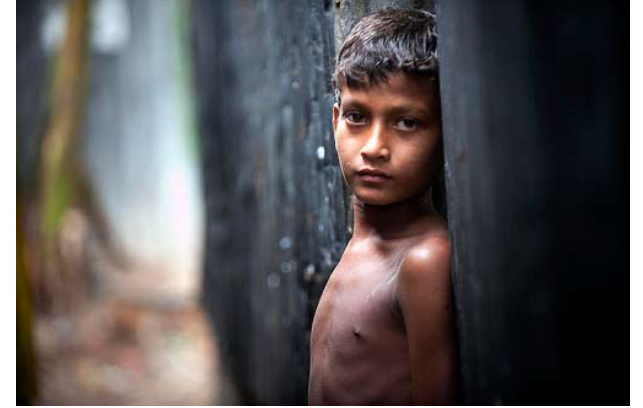
Published :
Updated :

The World Bank's Bangladesh Development Update, released on April 24, painted a gloomy picture of Bangladesh's economic outlook, warning of rising poverty, deepening inequality, and slowing growth. It indicates that an additional 3 million people may fall into extreme poverty this year, with the extreme poverty rate feared to rise from 7.7 per cent to 9.3 per cent. Meanwhile, the overall national poverty rate is forecast to increase from 20.5 per cent in 2024 to 22.9 per cent in 2025.
According to the World Bank report, income inequality in Bangladesh, measured by the Gini index, is projected to rise from 33.4 in 2022 to 36.1 in 2025. The Gini index ranges from 0, representing perfect equality, to 100, indicating maximum inequality.
To check the growing poverty and rising income inequality, the government will have to implement some targeted measures in the upcoming budget. Rising inequality and pervasive discrimination are not inevitable consequences of development; rather it is the result of deeply flawed economic policies that favour the interests of the elite leading to a skewed distribution of wealth and opportunities. As a result, inequality kept widening through various mechanisms, such as discriminatory taxation systems that disproportionately burden the poor, exploitative labour practices that permit extremely low wages, and widespread corruption and irregularities in the implementation of government programmes, including social safety net programmes. Additionally, inadequate investment in crucial public services such as healthcare and education has also limited the access of the disadvantaged to these essential services, exacerbating existing inequalities.
To address rising inequality, a government taskforce on Economic Strategy Redesign has rightly recommended the implementation of a progressive taxation system. Historically, Bangladesh's tax structure has been regressive in nature. For example, in the last fiscal year, indirect tax collection accounted for 66 per cent of the total tax revenue. This heavy reliance on indirect taxes like VAT and supplementary duties, which apply uniformly to goods and services regardless of the income level of consumers, disproportionately affects the poor and increases inequality. It is, therefore, imperative to pursue a progressive taxation system by increasing direct tax collection from wealthy individuals and corporations while reducing the burden of indirect taxes on the common people. Then there is a need for bolstering social security programmes, which can play a crucial role in mitigating economic inequality.
Another potent tool to fight inequality is equal opportunity to education, which can empower children from poor and disadvantaged families to improve their socioeconomic status. Regrettably, chronic neglect of public education and unchecked commercialisation of education have not only blunted this crucial tool but also exacerbated existing inequalities. Access to quality education, a fundamental right enshrined in the Constitution, is increasingly becoming a privilege for the wealthy. The rising cost of educational materials, high tuition fees for private tutoring, and the overall commercialisation of education have made quality education a luxury.
To a large extent, access to quality education is being determined by the financial capacity of the parents, rather than by the merit of the students. If the poverty of parents becomes a barrier to their children's education, those from disadvantaged backgrounds will be perpetually denied the opportunity to improve their socio-economic situation. This will not only perpetuate and widen existing economic and social inequalities but also hinder the nation's overall progress. Therefore, ensuring equality of opportunity at all levels of education is crucial for building a discrimination-free Bangladesh. This requires a significant investment in improving the quality of public education, making it accessible and affordable for all children, regardless of their socioeconomic background. Meanwhile, the health sector is also becoming increasingly commercialised. This has resulted in escalating healthcare expenses, forcing many people to deplete their life savings or incur significant debt to meet their emergency medical expenses.
The current interim government, which emerged from a popular uprising against discrimination, is undertaking various reforms across political, administrative, and institutional spheres. However, the core issue that fuelled the July uprising - the need to build a truly discrimination-free Bangladesh - appears to be relegated to the backburner. The government is expected to lay the foundation for a truly just and equitable society so that the sacrifices made during the July uprising do not go in vain.


 For all latest news, follow The Financial Express Google News channel.
For all latest news, follow The Financial Express Google News channel.